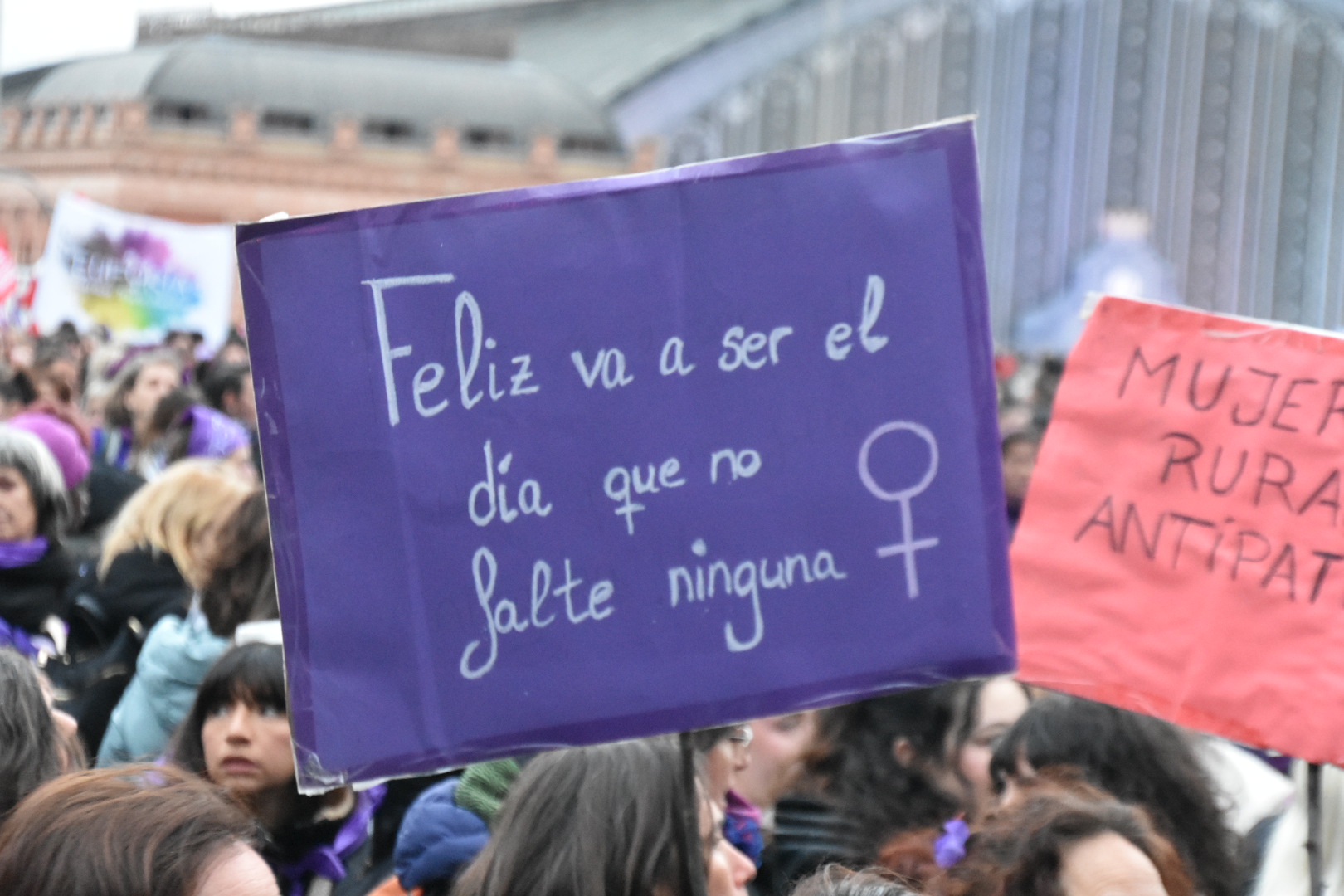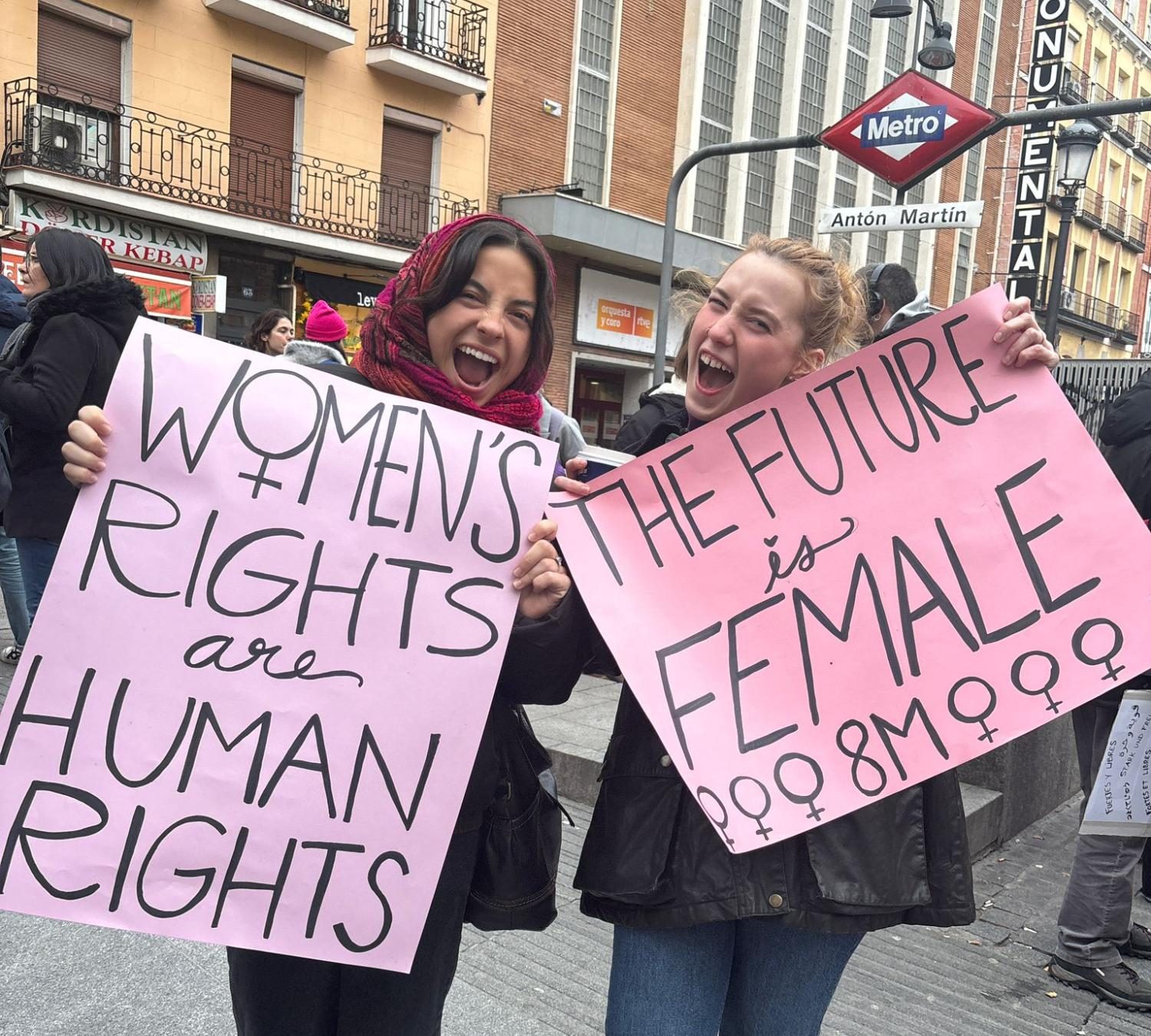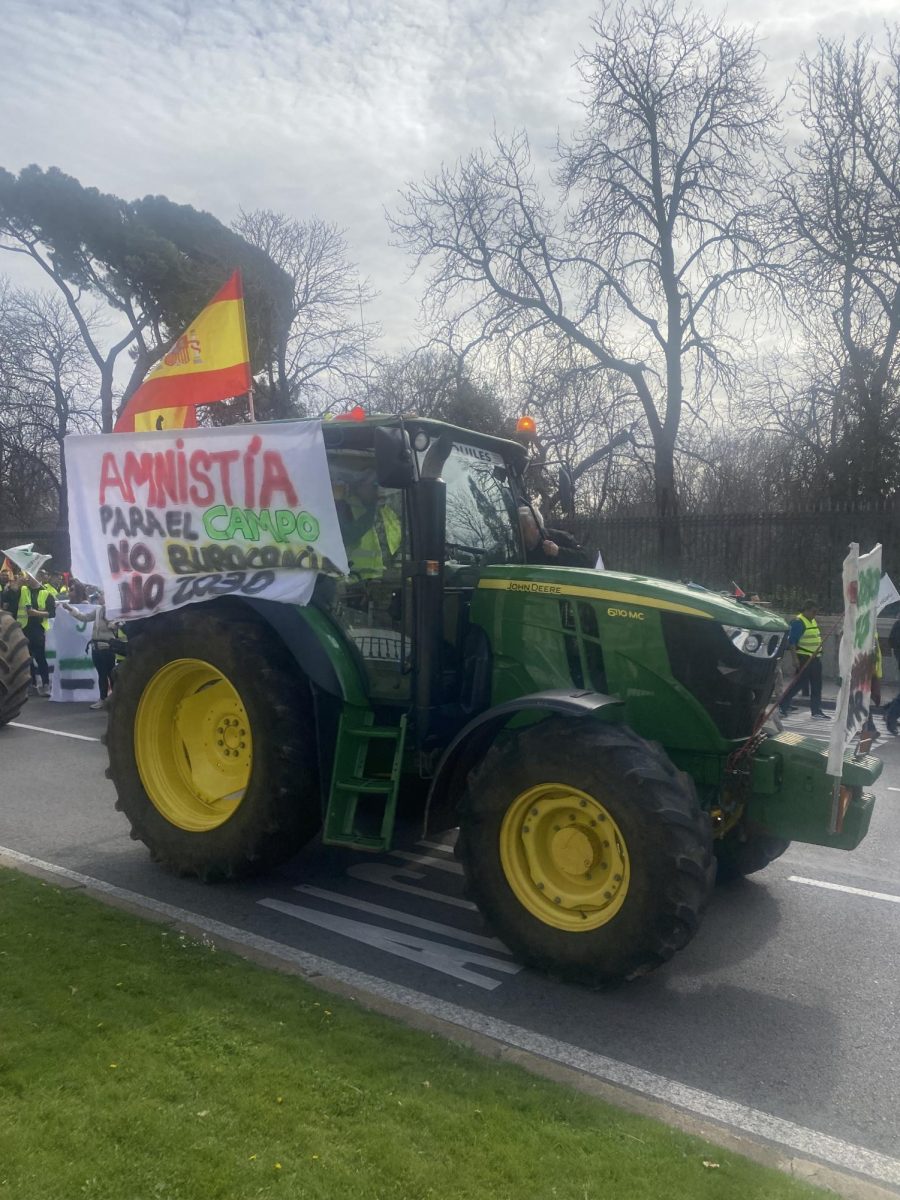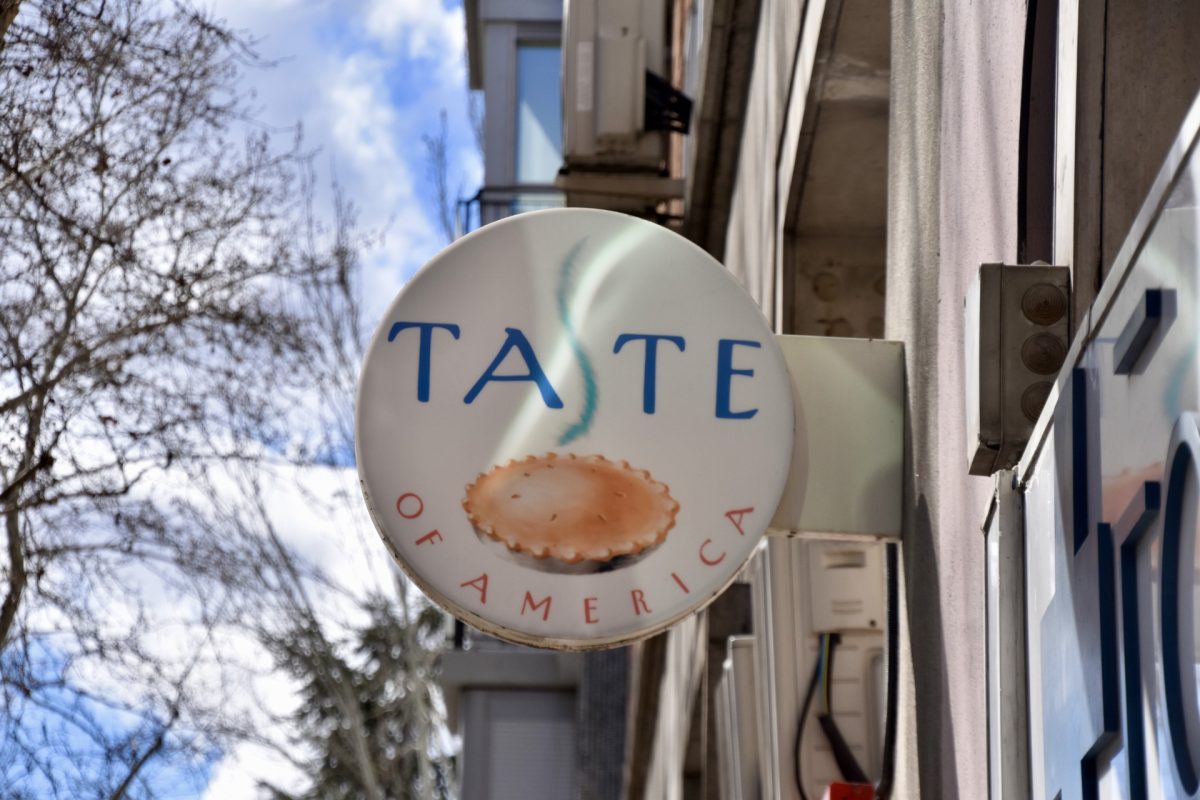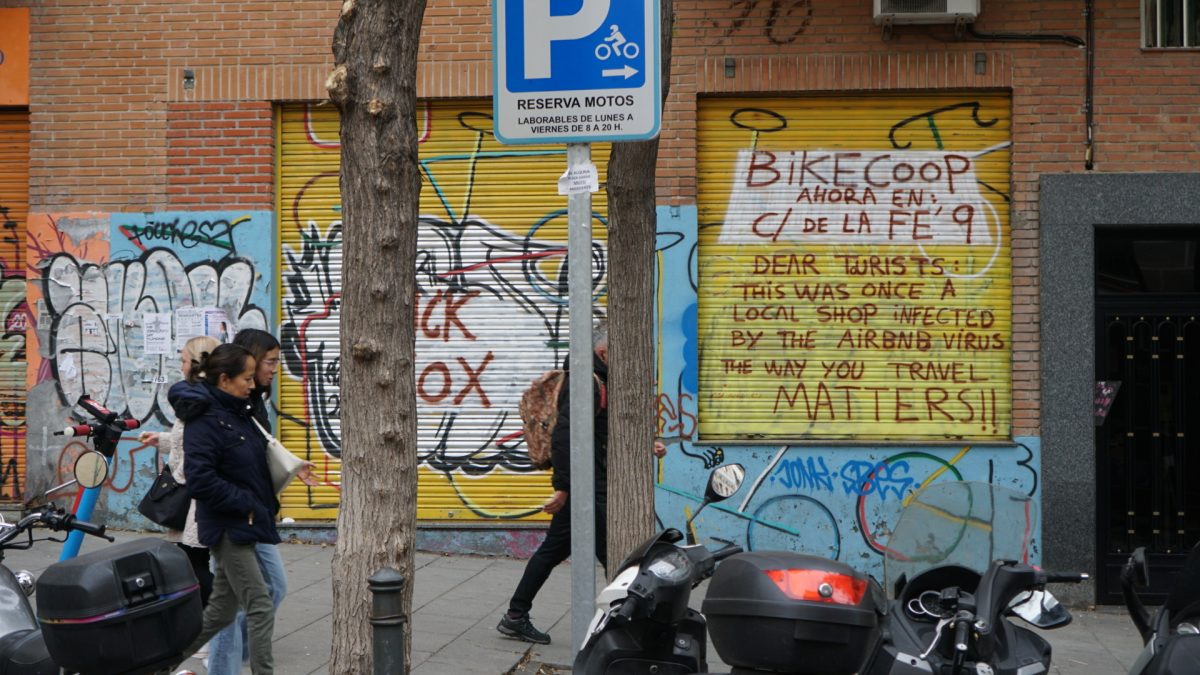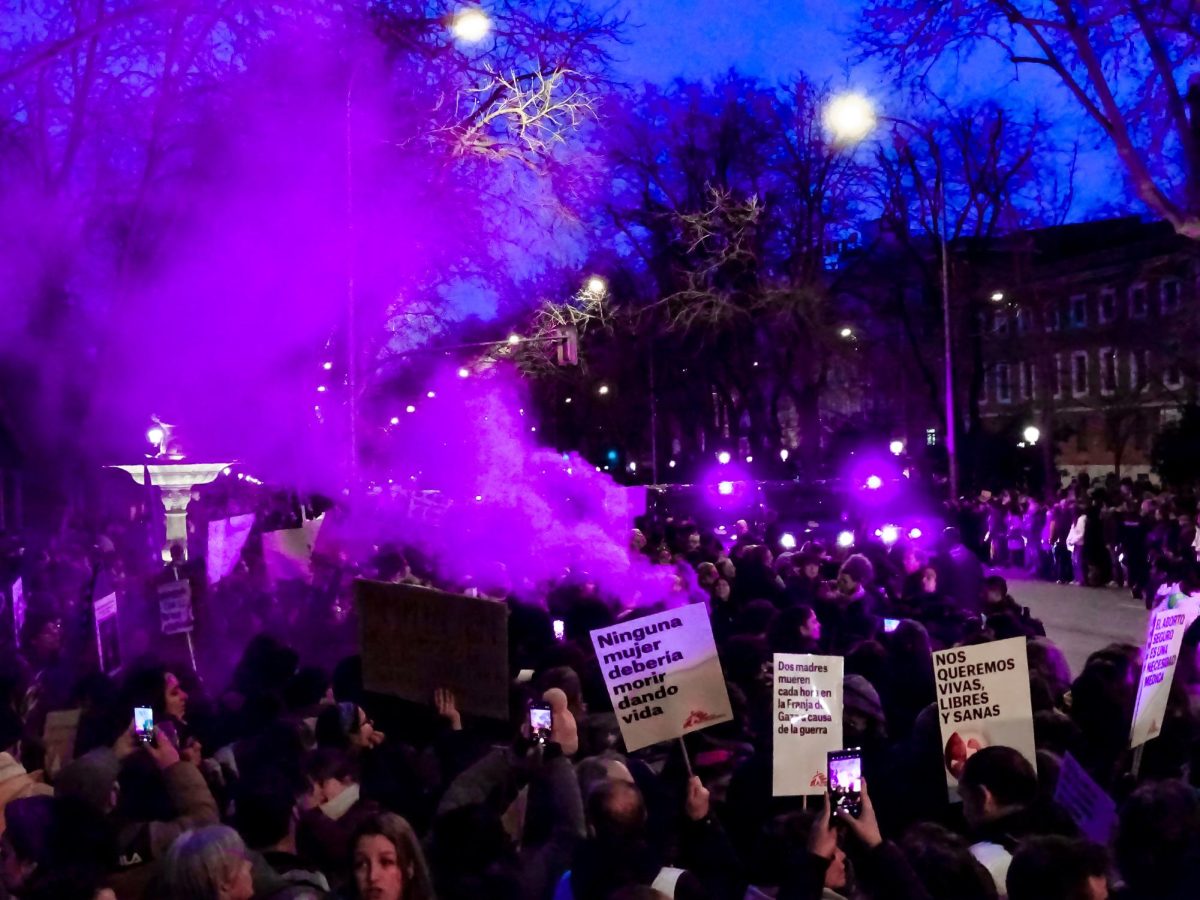
SLU-Madrid students dressed in purple, made placards and joined the tens of thousands of Madrileños who marched down the Paseo del Prado this spring in the annual International Women’s Day demonstration.
The Human Rights Club gathered a contingency of roughly 20 students and professors to join the March 8 rally, which began in Atocha and continued to the Plaza de Coló n. Other students marched separately in smaller groups.
“One of our goals this semester was to be more proactive,” said Victoria Flores, president of the Human Rights Club. “I have been spamming the WhatsApp group chat to get the student body more involved in human rights.”
As she spoke, Flores held her sign upright for all to see: “Women’s rights are human rights,” it read.
This was Flores’ first time attending the Women’s Day march, and she’s glad she went. “I believe it’s about coming to the march and understanding the real meaning of it,” Flores said, while near her stood a mother and son with a sign that said, “Fight like a Girl!” “Being present and not just seeing it on social media means a lot,” Flores said.
This year’s rally attracted roughly 30,000 of people in Madrid and tens of thousands more in cities across Spain, according to Spanish news reports. Despite the cold weather, a diverse crowd donned purple scarves and wigs, jackets and banners. Along side masses of union workers and college-age students were many grandmothers, entire families with toddlers in strollers and even what looked like a primary school group dancing and chanting.
Delia Zorzo carried a sign that said “Patriarcado x Capital Alianza Criminal, which translates to “Patriarchy and Capital, a Criminal Alliance.” It is her fourth time at the women’s march and she comes every year with her mom. She said she is marching for “the basic rights of women.”
“We are not in an equal society,” Zorzo said, while around her women, children and some men gathered in the Plaza de Antón Martín, waiting for the march to start. “The world doesn’t work without women.”
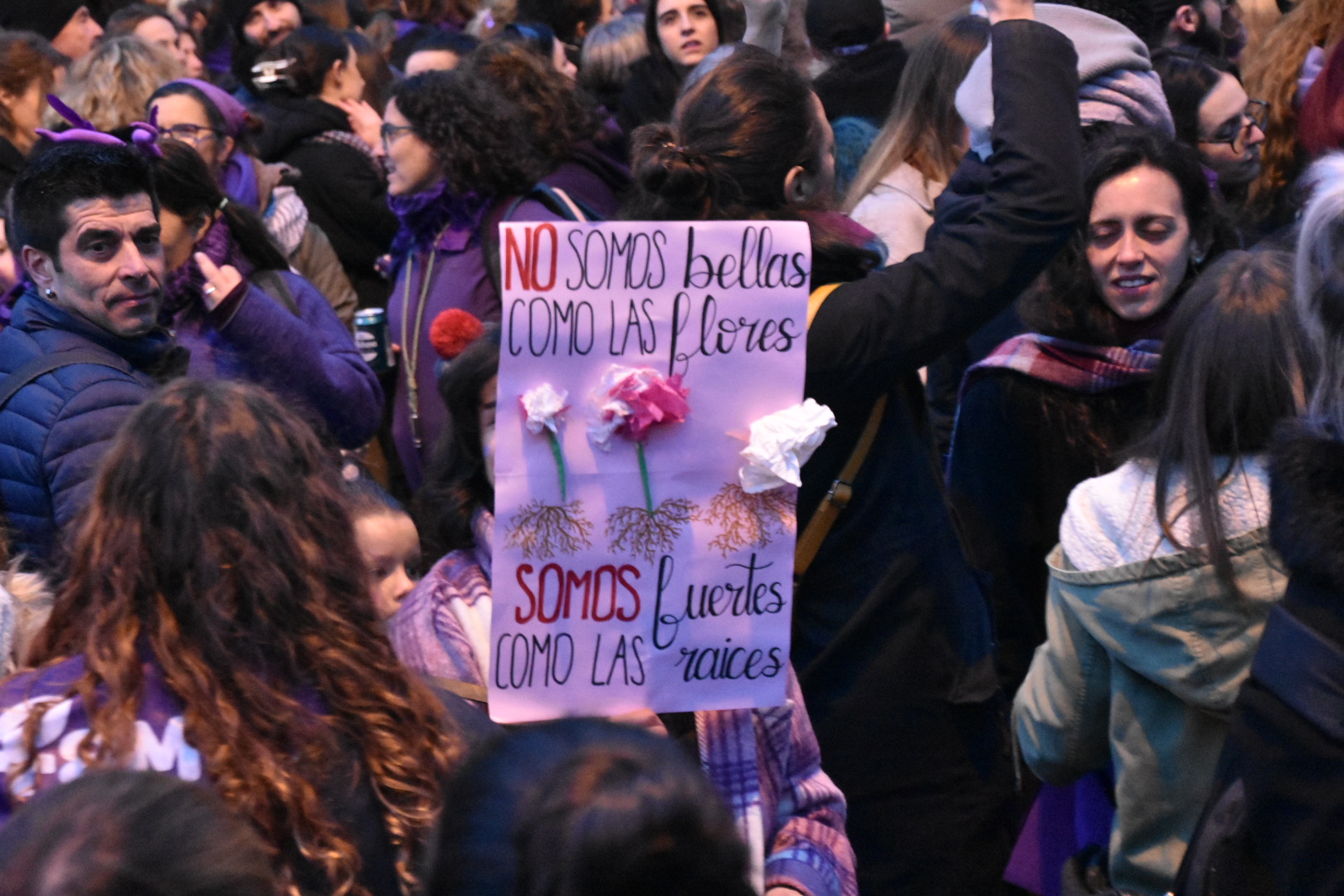
Nearby, Ana Gonzalez stood in front of the Anton Martín metro stop in a purple coat and purple sneakers. She has been attending the march since 2010, and this year she was accompanied by her sister-in-law, her husband, Argelio, and her daughters. She said she cares especially about gender equality.
“I don’t have problems with mine,” she said, signaling to her husband and friend, “but there is no equality at all, come on. My husband is a feminist too, so he decided to come along with me.”
As she spoke, a group of women, men and children in strollers chanted in rhyming Spanish: “Here we are, the feminists! Size-38 pants hurt my crotch!”
“I am a woman who has worked all my life, so I feel it is my duty to come to this march and represent other women,” Gonzalez added.
Ana Martínez carried a sign that said in Spanish, “The teacher who fights is a teacher who teaches.” It was the second time she attended the march and wasaccompanied by her colleagues. She cares especially about equality and women’s rights in the educational field.
“Fighting for our rights is a way of teaching students the value of education and justice,” she said, while around her the buzz of the crowd mixed with the sounds of protest songs and empowering slogans. “In the classroom and in the streets, we’re educating for change.”
Grace Balzer was visiting from the States and was captivated by the slogans and displays of purple as she walked down the street. So she decided to join to support women’s rights. “I wanted to be part of it,” she said. “I’m a lesbian…so for me, it makes it even more worth fighting for, especially safety-wise.”
